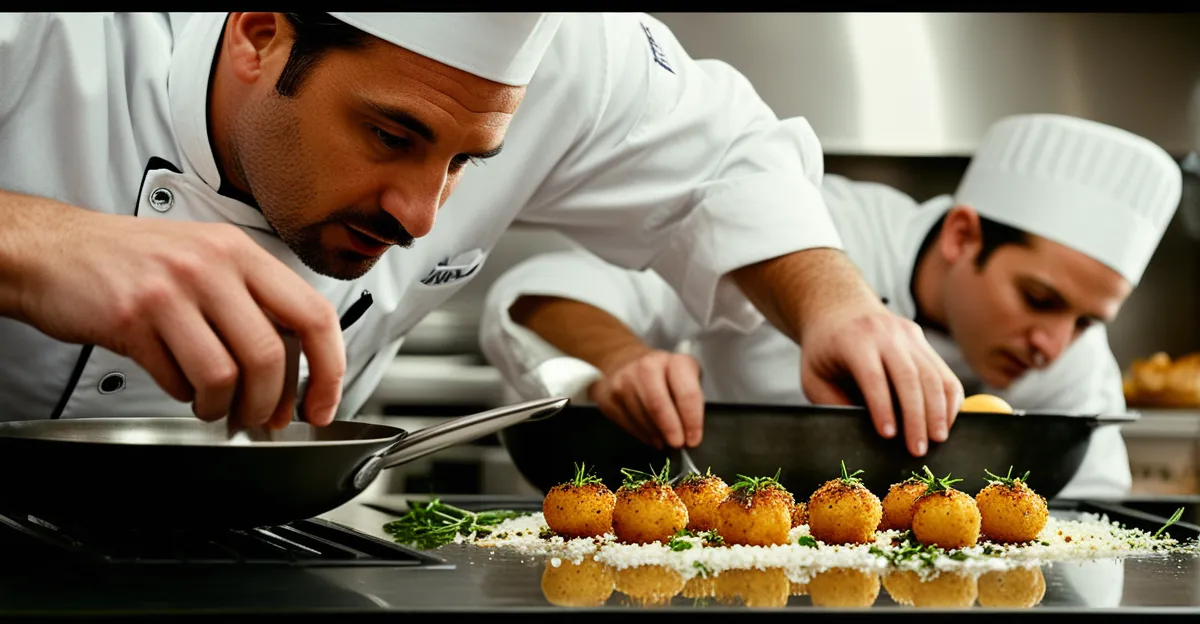Core Challenges Impacting UK Chefs in Modern Cuisine
UK chefs today face significant challenges tied to ingredient sourcing, menu development, and evolving dietary trends. One key challenge for UK chefs is navigating the complexities of ingredient seasonality and local supply. Availability can fluctuate due to weather, Brexit-related trade adjustments, and logistical issues, which affects menu consistency. Chefs must stay agile—planning menus that respect modern British cuisine’s emphasis on fresh, local produce while managing these unpredictable factors.
Balancing authenticity and innovation also presents a culinary obstacle crucial to many UK kitchens. Diners value tradition but seek novelty, pushing chefs to blend classic flavors with contemporary techniques. This delicate balance drives creativity but can strain resources and planning.
Additional reading : How can you make a perfect sticky toffee pudding at home?
Additionally, UK chefs grapple with adapting to the rapid pace of dietary and culinary trends. From plant-based diets to allergen awareness, menus must evolve continuously to meet consumer expectations without compromising kitchen efficiency. These trends influence ingredient selection, preparation methods, and menu readability, demanding ongoing staff training and flexibility.
Addressing these core challenges fortifies chefs’ ability to thrive in a competitive, dynamic culinary landscape.
In the same genre : What are the key techniques for crafting a traditional Lancashire hotpot?
Operational Pressures and Rising Costs
UK chefs and restaurant owners face mounting rising operational costs that significantly strain their businesses. Key issues include escalating restaurant expenses UK such as food prices and utility bills. Food cost increases often result from supply chain disruptions and inflationary pressures, forcing kitchens to reconsider menu pricing and ingredient sourcing strategies without compromising quality.
Another major challenge is the surge in rent and business rates, which can consume a large portion of a restaurant’s budget. The cumulative effect of these expenses compels many establishments to optimize operations, reduce waste, and improve energy efficiency to stay financially viable.
Inflation exacerbates these pressures by raising costs across the board, from raw materials to packaging. The longer supply chains face instability, the harder it becomes for chefs to predict and control expenses. These chef industry pressures can impact staffing decisions, menu planning, and overall restaurant profitability.
Understanding and managing these operational challenges is critical for chefs who want to maintain creative freedom while navigating an increasingly complex economic environment. Businesses that adapt proactively to cost fluctuations and operational demands have a stronger chance of thriving in the competitive UK culinary scene.
Staffing Shortages and Skills Gaps
The chef shortages UK pose one of the most pressing kitchen workforce challenges today. Since Brexit, the hospitality sector struggles with recruitment and retention, as many experienced EU workers have left. This hospitality staff crisis reduces the pool of skilled chefs and general kitchen staff. Fewer chefs mean greater workloads for remaining staff, risking burnout and declining service quality.
Recruitment difficulties arise not only from regulatory changes but also from a competitive labour market and changing career preferences among younger workers. Many UK kitchens face prolonged vacancies, forcing managers to hire less experienced staff or rely on temporary workers. This can impact kitchen efficiency and consistency.
Staff shortages also affect training and development, making it harder to maintain culinary standards in fast-evolving operations like modern British cuisine restaurants. In response, some kitchens invest more in internal training or adjust menus to fit available skill sets. Supporting chef wellbeing by managing workloads and fostering a positive environment is crucial to retention.
Understanding the root causes of chef shortages UK allows businesses to develop targeted strategies that help stabilize their workforce and preserve the quality consumers expect.
Meeting Diverse Dietary and Cultural Expectations
UK chefs must master the art of responding to dietary trends UK while respecting cultural diversity and managing allergens. The demand for vegan, vegetarian, and allergen-free diets continues to grow, pushing kitchens to innovate without compromising flavour or safety. This shift requires chefs to understand ingredient substitutions thoroughly and avoid cross-contamination risks.
How do chefs ensure allergen compliance? Meticulous kitchen protocols, clear menu labelling, and staff training form the foundation. Regular updates to allergen management practices minimize the risk of exposure, fostering trust among customers with specific dietary needs.
Integrating multicultural influences responsibly enriches menus but brings its own set of challenges. Chefs must honour authentic flavours while adapting dishes to local ingredient availability and customer preferences. This balance involves ongoing research and creativity, ensuring both respect for cultural origins and appeal to diverse diners.
Ultimately, mastering these culinary obstacles equips chefs to serve a broad clientele effectively. Embracing diverse dietary trends UK, allergen safety, and cultural respect enhances patron satisfaction and positions modern British cuisine as inclusive and innovative.
Embracing Sustainability in Modern British Kitchens
Chefs in modern British cuisine are increasingly adopting sustainable cuisine UK practices to address pressing environmental concerns. A major challenge for UK chefs is implementing sustainable sourcing—selecting ingredients based on their ecological footprint, seasonality, and local availability. This approach not only supports local producers but also reduces transportation-related emissions, aligning with consumer expectations for eco-friendly restaurants.
Food waste reduction forms a core pillar of sustainable kitchens. Many chefs employ precise portion control, creative use of leftovers, and composting initiatives to minimise waste. Such measures cut costs and environmental impact, directly addressing chef industry pressures related to rising operational expenses.
Meeting the growing demand for environmentally responsible dining means integrating sustainability throughout operations. This includes energy-efficient appliances and eco-conscious packaging. Chefs balancing these demands must innovate without sacrificing menu quality or the authenticity that modern British cuisine customers desire.
By embracing sustainable practices, UK kitchens position themselves as leaders in responsible dining while navigating the multiple culinary obstacles present in today’s kitchen landscape. This integration enhances reputation and meets the evolving values of diners seeking impact-conscious choices.









